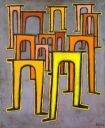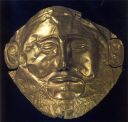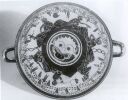|
Greetings
from Peter Fitz
A warm hello to fellow students of Arts and Ideas.
Who are we?
We’re
getting together for a variety of individual purposes,
What will we do?
We have the
simplest of subjects, but the most varied
How can we work?
Let’s keep
a good grip on priorities. We will, of course,
First we
read. Then we reflect on our reading.
But we also recall what bothered us. Of course you can recall one incident that interested you. Now get clearer about why it interested you. Then adapt your understanding to the attention of fellow students. How might they share your interest? Now consider what bothered you. Remember stories you like. Now consider stories you’ve learned from. The first interest you. The second probably bother you. But without pain, no gain.
See if you can find an incident in your reading where you can find differences of opinion, differences of approach. Characters acting contrary to your expectations or approval may inhabit different situations, a consequence of living in different times, places and cultures, in different circumstances. I’m not a fan of the view that there’s nothing new under the sun. Recall responses to the first atom bomb. Circumstances change.
Don’t forget I do time at the University of Baltimore, 1319 North Charles Street, in the Charles Royal building, Room 201. You may not find the time to come on over — but you can. That’s an e-mail I appreciate.
Focus on
primary readings. You’ll spend a big chunk of this class reading Homer’s
Iliad. You’ll need perseverance. But once you’ve done your
reading, you can use your time and effort to advantage: recall what most
engaged you. With experience, you may find that challenging passages
increasingly engage you. Find a specific incident (and passage). Use
your wide-ranging reading experience to home in on the circumstances of
specific characters
Then consider supplementary related resources. Required resources appear in the syllabus schedule. You may explore and use additional resources to the extent you find them useful.
Next engage your peers. Each week you will post several comments to the weekly discussion forum, as well as several responses to postings by fellow students. Why should they be interested in your discoveries? How can you interest them? Perhaps you will be more selective in your responses. Perhaps you will be an improved listener on discussion forums. Now you can be a player, one of the chorus. And as we listen, so shall we sing.
1
Prepare a
brief (about 100 words) account of who you are,
2 The Arts & Ideas syllabus and reading assignments appear above, and also under SYLLABUS in Prometheus. Check the syllabus and reading assignments in advance to anticipate effective use of your available time. Dates for reading assignments are for dates when listed readings are to be completed. For the first week you may combine the links assigned readings in links below with readings in the Iliad for next week. The syllabus identifies readings in five periods. Remember that all sessions center on how particular stories function for their audiences.
3
4
Explore these resources freely, without concerns
Selections will pop up. Use the browser STOP
When using resources remember that you can
click on most images to pop up enlargements (and remember to close
windows with enlargements when finished). Try clicking on the image
above. |










